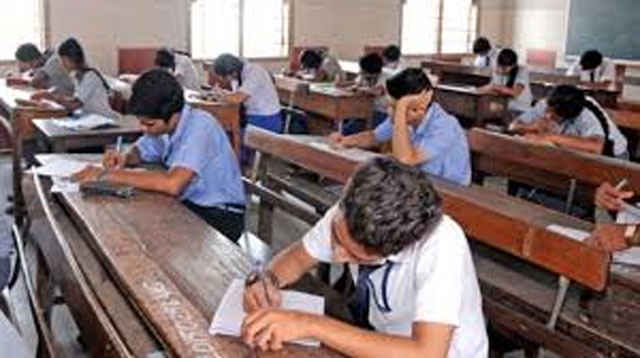Daijiworld Media Network- Bengaluru
Bengaluru, Jul 27: In a major policy shift that could benefit lakhs of students across the state, the Karnataka government has proposed a reduction in the Secondary School Leaving Certificate (SSLC) examination passing criteria. As per a draft notification issued by the Karnataka School Examination and Assessment Board (KSEAB), the new proposal suggests lowering the subject-wise passing percentage from 35% to 30% and introducing a combined average pass percentage of 33%.
Under the revised guidelines, a student will be declared pass if they secure a minimum of 30% marks in each subject and an average of 33% when both internal assessments and final exam marks are combined. This means students must secure at least 206 marks out of a total 625 to clear the SSLC examination under the proposed system.

Representational image
At present, students must score 35% in each subject individually to be considered passed, without any scope for compensating weaker subject scores with higher performance in others. The new framework aims to offer a more student-friendly and flexible evaluation structure, giving room for subject-wise variability in performance while still ensuring a reasonable overall achievement.
D Shashi Kumar, general secretary of the Karnataka Association of Managements of English Medium Schools (KAMS), welcomed the move. He was quoted as saying that “This is a much-needed reform. It will benefit nearly one crore students across Karnataka. However, the government must also consider bringing parity in evaluation standards by reducing the first language paper from 125 marks to 100, in line with other education boards.”
The decision comes amidst a noticeable drop in SSLC pass percentages in recent years, particularly after the introduction of a stringent web-casting system aimed at curbing examination malpractices. The pass percentage dipped from 83% in the academic year 2022-23 to 54% in 2023-24 (Exam 1).
Following criticism and a public outcry, grace marks were awarded, raising the pass percentage to 74%. In the academic year 2024-25, the pass percentage improved to 66% under the continued surveillance of the web-casting system.
Despite the improvement, education minister Madhu Bangarappa and the board came under scrutiny from chief minister Siddaramaiah for relying on grace marks to boost results. The new proposal is expected to reduce such reliance while still ensuring a balanced approach towards academic evaluations.
Further clarity and final confirmation from the government are awaited regarding the implementation timeline of the new evaluation system.